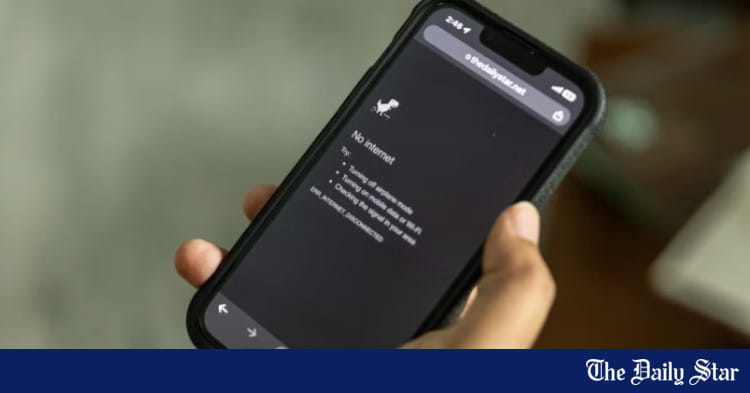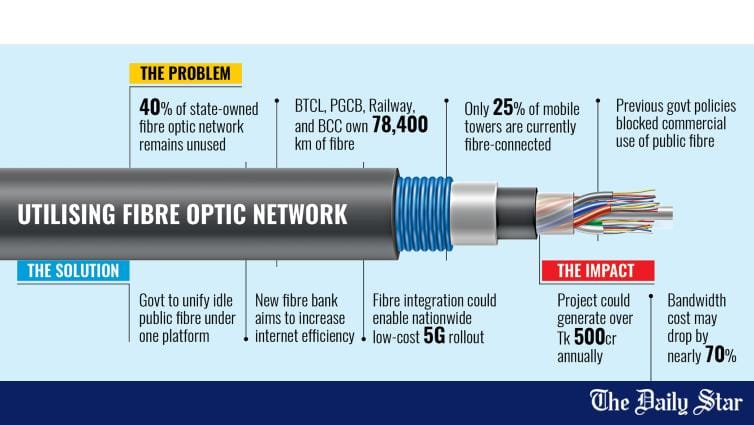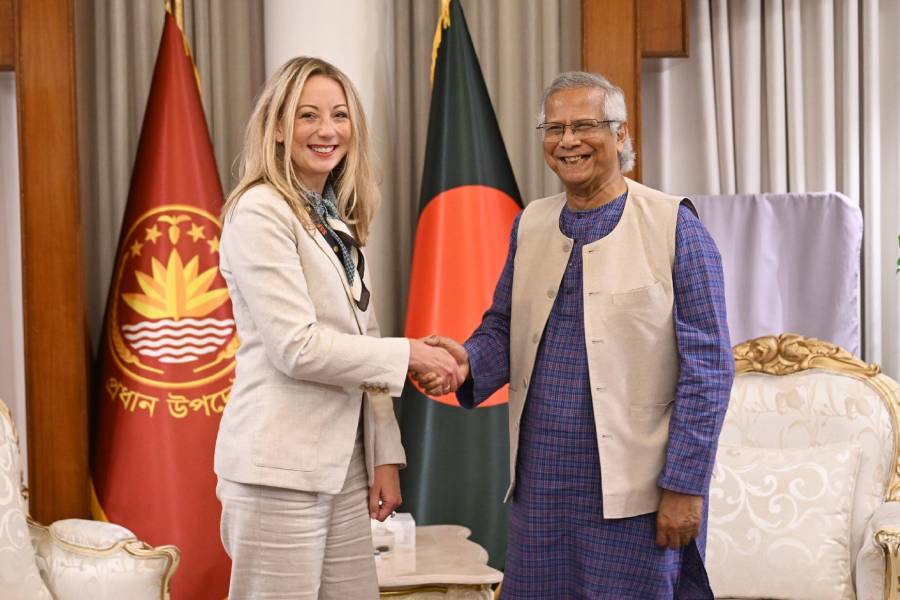Saif
Senior Member
- Joined
- Jan 24, 2024
- Messages
- 17,219
- Likes
- 8,260
- Nation

- Residence

- Axis Group


AIS: the key tool for good management
Accounting Information System (AIS) of an entity is essentially an Accounting Software. This is the core hub of all the financial data for the Management of Corporates, Listed Companies, NGOs, Banks and NBFIs, Public Sector Entities, and SMEs. The significant component of Corporate Governance heavi
AIS: the key tool for good management
Sheikh Tareq Zahir
Published :
Jun 11, 2025 00:49
Updated :
Jun 11, 2025 00:49

Accounting Information System (AIS) of an entity is essentially an Accounting Software. This is the core hub of all the financial data for the Management of Corporates, Listed Companies, NGOs, Banks and NBFIs, Public Sector Entities, and SMEs. The significant component of Corporate Governance heavily relies on the financial controls and reporting to stakeholders. Accordingly, the importance of good AIS has increased manifold in Bangladesh. Particularly, all SMEs are in need of good AIS because of their significant contribution to the business and economy of the country. In Bangladesh, adequate focus is absent to install and run proper AIS. This write-up is an attempt to highlight this issue.
Management is responsible to prepare the financial statements and provide those to the auditors for audit. Obviously, these financial statements are prepared based on the AIS of the entity. Management, either the Board or the sole proprietor himself, analyses financial data for everyday business decisions, and for submission to different stakeholders.
Entrepreneurs know the best about the outlook of their business. They always have their own mental math to run their business and mostly rely on this. Hence, most of them think that they don’t need a proper AIS. However, this mental ‘strength’ fails to save many companies from distress calls due to poorly managed financial information. For example, profit numbers and cash flow numbers are two different scenarios because, among many things, higher sales may not always guarantee higher cash inflows from collections. So, if you ‘think’ that increased sales will show higher profit, you may find that while profit has increased, it may not lead to improved cash position.
Properly prepared financial statements are must for business sustainability. It means those are compliant with International Financial Reporting Standard (IFRS). Compliance with these standards, as adopted by different countries, will ensure that the business is preparing and reporting proper financial statements for the entrepreneurs and stakeholders alike.
Without proper AIS, no governance code/policy will work. If the AIS of an entity does not function well, and/or the people cannot run it properly all the above processes become chaotic. On the other hand, in the absence of a good AIS, the senior officials find it difficult against a proper audit because they struggle to provide information and documents in due time. You cannot apply IFRS if you don’t have a proper AIS to do this. So, this is of paramount importance that entities install and run a well-designed AIS.
There’s a plethora of writings on the importance of a proper set of financial statements. But adequate emphasis is not given on the importance of managing the core financial information hub. In Bangladesh, the reason behind this is primarily from the demand side of it.
Entrepreneurs lack the understanding and/or bother less about implementing a proper AIS. Also, many of them try to avoid a good AIS because they fear that this will expose them to the Tax and VAT authorities for their Tax and VAT evasions. They feel that it is better to keep books of accounts mostly in manual fashion, so they can manipulate their records to evade Tax and VAT.
Most SMEs demand for the cheap and popular off-the shelf software without much work-around to suit their needs. But they find later that this does not serve their purposes. This leads to a bad implementation and wastage of money and efforts, because more often than not, the weak (but cheap) software gives very low extent of information support. So they don’t feel the necessity of it. This is somewhat similar for some RMG Companies.
Another case of RMG companies is that the entrepreneurs invest crores of taka behind ERP (Enterprise Resource Planning) software. Few months down the line, they find that they have selected the software that does not match with their operations and expectations.
The other side of the gamut is that entities that choose the right software, fail to assess that they actually have low calibre people to run a good system. So either the implementation or the subsequent operation of the system fails. Then they try to justify and practice of keeping manual books over a good AIS. This is a common case for RMG companies.
SMEs in Bangladesh have a significant role in the economy. Experts now estimate that there are over 10 million SMEs in Bangladesh and they currently contribute 30-32 per cent to the GDP. Over 24 million people are employed in this sector. Bangladesh Bank has mandated that all banks allocate 25 percent of their total loan disbursement to CSMEs by December 2024, and banks are diligently adhering to this directive (Note)*. Naturally, the SMEs will be soon required to prepare and submit their financial statements to various authorities. So, it is extremely important that these SMEs have good AIS. But from the experience as a practicing accountant, this was observed that these business enterprises have weak AIS, if at all, both with the software and the quality of people running it.
Auditors must review the adequacy of the AIS as part of their review of the internal Control System of a client to conclude on the extent they would rely on it. Their subsequent audit works will heavily rely on this assessment. If they find that the AIS is faulty, this means that the source of information is faulty as well. So, they must become more alert that there are now higher likelihood of errors and frauds in the financial statements. This will help them do a quality audit.
Auditors must be aware that when the client submits information on a spreadsheet, this does not necessarily mean that those came directly from the AIS without errors – some manual intervention can always take place on spreadsheets. So, this becomes imperative for them to take a ‘read-only’ access into the AIS of the client and review the audit trails, the extent of manual book entries, and the access level controls in the AIS. This shows client’s governance strength over business-critical information. This basic audit approach, of course, does not mean that the audit team members must be highly trained in IT. The fundamental understanding of AIS governance with proper training will do the job.
So what can we do about this?
From a project management perspective, it was observed that many brilliant business graduates struggle in either implementing or in operating a good AIS, although they have studied many courses. Educational institutes that impart business studies should enhance their existing courses, so that they can train the students on how to design and run AIS. The real world works around a good AIS, so, if this is not properly handled, the other discussions around business become futile. This will help them build up a good idea that the core of good governance lies with reliable financial data from a good AIS.
Both ICAB and ICMAB should hold awareness sessions with different trade bodies and other stakeholders. Entrepreneurs will become aware of the importance of proper AIS. All stakeholders will also get quick and accurate data for their purpose against specific demands. So this is a win-win situation.
There must be more rigorous hands-on training sessions for accounting professionals in the country. These trainings should focus on implementation of good AIS. Auditors must be trained so they can understand and question the design and operation of AIS. They can, thus, do a quality audit. Both the ICAB and ICMAB can collaborate with international software companies so they can achieve the training efficacies. The software Companies will be interested to lend a hand in view of their business expansions.
Sheikh Tareq Zahir FCA is a Partner at Ahmed Sheikh Roy & Co., Chartered Accountants.
Sheikh Tareq Zahir
Published :
Jun 11, 2025 00:49
Updated :
Jun 11, 2025 00:49
Accounting Information System (AIS) of an entity is essentially an Accounting Software. This is the core hub of all the financial data for the Management of Corporates, Listed Companies, NGOs, Banks and NBFIs, Public Sector Entities, and SMEs. The significant component of Corporate Governance heavily relies on the financial controls and reporting to stakeholders. Accordingly, the importance of good AIS has increased manifold in Bangladesh. Particularly, all SMEs are in need of good AIS because of their significant contribution to the business and economy of the country. In Bangladesh, adequate focus is absent to install and run proper AIS. This write-up is an attempt to highlight this issue.
Management is responsible to prepare the financial statements and provide those to the auditors for audit. Obviously, these financial statements are prepared based on the AIS of the entity. Management, either the Board or the sole proprietor himself, analyses financial data for everyday business decisions, and for submission to different stakeholders.
Entrepreneurs know the best about the outlook of their business. They always have their own mental math to run their business and mostly rely on this. Hence, most of them think that they don’t need a proper AIS. However, this mental ‘strength’ fails to save many companies from distress calls due to poorly managed financial information. For example, profit numbers and cash flow numbers are two different scenarios because, among many things, higher sales may not always guarantee higher cash inflows from collections. So, if you ‘think’ that increased sales will show higher profit, you may find that while profit has increased, it may not lead to improved cash position.
Properly prepared financial statements are must for business sustainability. It means those are compliant with International Financial Reporting Standard (IFRS). Compliance with these standards, as adopted by different countries, will ensure that the business is preparing and reporting proper financial statements for the entrepreneurs and stakeholders alike.
Without proper AIS, no governance code/policy will work. If the AIS of an entity does not function well, and/or the people cannot run it properly all the above processes become chaotic. On the other hand, in the absence of a good AIS, the senior officials find it difficult against a proper audit because they struggle to provide information and documents in due time. You cannot apply IFRS if you don’t have a proper AIS to do this. So, this is of paramount importance that entities install and run a well-designed AIS.
There’s a plethora of writings on the importance of a proper set of financial statements. But adequate emphasis is not given on the importance of managing the core financial information hub. In Bangladesh, the reason behind this is primarily from the demand side of it.
Entrepreneurs lack the understanding and/or bother less about implementing a proper AIS. Also, many of them try to avoid a good AIS because they fear that this will expose them to the Tax and VAT authorities for their Tax and VAT evasions. They feel that it is better to keep books of accounts mostly in manual fashion, so they can manipulate their records to evade Tax and VAT.
Most SMEs demand for the cheap and popular off-the shelf software without much work-around to suit their needs. But they find later that this does not serve their purposes. This leads to a bad implementation and wastage of money and efforts, because more often than not, the weak (but cheap) software gives very low extent of information support. So they don’t feel the necessity of it. This is somewhat similar for some RMG Companies.
Another case of RMG companies is that the entrepreneurs invest crores of taka behind ERP (Enterprise Resource Planning) software. Few months down the line, they find that they have selected the software that does not match with their operations and expectations.
The other side of the gamut is that entities that choose the right software, fail to assess that they actually have low calibre people to run a good system. So either the implementation or the subsequent operation of the system fails. Then they try to justify and practice of keeping manual books over a good AIS. This is a common case for RMG companies.
SMEs in Bangladesh have a significant role in the economy. Experts now estimate that there are over 10 million SMEs in Bangladesh and they currently contribute 30-32 per cent to the GDP. Over 24 million people are employed in this sector. Bangladesh Bank has mandated that all banks allocate 25 percent of their total loan disbursement to CSMEs by December 2024, and banks are diligently adhering to this directive (Note)*. Naturally, the SMEs will be soon required to prepare and submit their financial statements to various authorities. So, it is extremely important that these SMEs have good AIS. But from the experience as a practicing accountant, this was observed that these business enterprises have weak AIS, if at all, both with the software and the quality of people running it.
Auditors must review the adequacy of the AIS as part of their review of the internal Control System of a client to conclude on the extent they would rely on it. Their subsequent audit works will heavily rely on this assessment. If they find that the AIS is faulty, this means that the source of information is faulty as well. So, they must become more alert that there are now higher likelihood of errors and frauds in the financial statements. This will help them do a quality audit.
Auditors must be aware that when the client submits information on a spreadsheet, this does not necessarily mean that those came directly from the AIS without errors – some manual intervention can always take place on spreadsheets. So, this becomes imperative for them to take a ‘read-only’ access into the AIS of the client and review the audit trails, the extent of manual book entries, and the access level controls in the AIS. This shows client’s governance strength over business-critical information. This basic audit approach, of course, does not mean that the audit team members must be highly trained in IT. The fundamental understanding of AIS governance with proper training will do the job.
So what can we do about this?
From a project management perspective, it was observed that many brilliant business graduates struggle in either implementing or in operating a good AIS, although they have studied many courses. Educational institutes that impart business studies should enhance their existing courses, so that they can train the students on how to design and run AIS. The real world works around a good AIS, so, if this is not properly handled, the other discussions around business become futile. This will help them build up a good idea that the core of good governance lies with reliable financial data from a good AIS.
Both ICAB and ICMAB should hold awareness sessions with different trade bodies and other stakeholders. Entrepreneurs will become aware of the importance of proper AIS. All stakeholders will also get quick and accurate data for their purpose against specific demands. So this is a win-win situation.
There must be more rigorous hands-on training sessions for accounting professionals in the country. These trainings should focus on implementation of good AIS. Auditors must be trained so they can understand and question the design and operation of AIS. They can, thus, do a quality audit. Both the ICAB and ICMAB can collaborate with international software companies so they can achieve the training efficacies. The software Companies will be interested to lend a hand in view of their business expansions.
Sheikh Tareq Zahir FCA is a Partner at Ahmed Sheikh Roy & Co., Chartered Accountants.









































